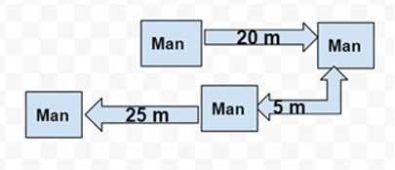TS Grewal Solutions for CBSE Class 12 Commerce Accountancy greatly assists students in comprehending and practicing many aspects of accountancy. These solutions assist students in not only comprehending the material, but also in gaining clarity and increasing their exam scores.
For preparation and review, TS Grewal Accountancy Chapter by Chapter Textbook Solutions are simple to grasp. These Accountancy TS Grewal Solutions are likely to appear on CBSE Final exam question papers. As a result, students can use these solutions to improve their test scores.
Exams and everyday tasks for pupils benefit greatly from these textbook answers. Simple and obvious solutions to complicated problems are provided in the solutions.
For Commerce students in class 12, TS Grewal Solutions for Class 12 Accountancy is an essential study aid.The greatest study resource to turn to when studying for the examination is TS Grewal Class 12 Accountancy Solutions, which were developed by professional lecturers. When it comes to accountancy classes, revisions may be fairly difficult. It demands pupils to manage their time, improve their accuracy, and reduce the number of stupid mistakes they make. This is something that TS Grewal class 12 solutions may assist you with.
The answers are well-thought-out and comprehensive. You may utilise these answers not only to rehearse them rapidly, but also to make last-minute changes.
Volume 1 of TS Grewal’s Double Entry Bookkeeping Class 12 Solutions: Accounting for Partnership Firm
- Company Accounts and Financial Statements of Non-Profit Organizations, (Chapter 1)
- Changes in Profit-Sharing Ratios among Existing Partners (Chapter 2)
- The Nature and Value of Goodwill (Chapter 3)
- (Chapter 4) Partner Death or Retirement
- Fundamentals of a Partnership Accounting: (Chapter 5)
- (Chapter 6th) Partner Admission
- Chapter 7, Partnership Firm Dissolution
Volume 2 of TS Grewal’s Double Entry Bookkeeping Class 12 Solutions: Accounting for Not-for-Profit Organizations and Businesses
- Chapter 8: Share Capital Accountancy
- Debenture Issues (Chapter 9)
- Chapter 10: Debenture Redemption
If you want to speed up your exam revisions with TS Grewal Solutions, start with this quick overview of the chapters.
- Accounts of the Business Not-for-Profit Organizations’ Financial Statements
Not-for-profit organizations are those that do not aim to make a profit. They typically work for social issues or for the benefit of the general population. Non-business enterprises are another term for such groups. The accounting technique of these companies differs due to the lack of a profit goal.
Students will learn how to compute the receipts, liabilities, payments, and other financial aspects of such companies in the first chapter of TS Grewal Class 12 Solutions volume 1.
- Accounting Fundamentals for Partnership
Partnership businesses are legal entities in which two or more people agree to share profits, risks, obligations, and duties in a business. The Partnership Act of 1932 establishes the rules for partnerships.
This chapter begins with an explanation of dispute resolution before moving on to numerical sums. In this chapter, students will learn how to compute profit distribution, capital interest, and manager’s commission, among other things.
- Goodwill’s Nature and Value
A company’s goodwill may be defined as its reputation built through time. Firms that have been in operation for a long time have earned a positive reputation in the marketplace. Later on, this reputation is valued in monetary terms.
Despite the fact that goodwill is an intangible asset, it is commonly regarded as one of the company’s assets. In this chapter of TS Grewal Class 12 Solutions volume 1, you will learn how to value a company’s goodwill.
- Changes in Profit-Sharing Ratio of the Existing Partner
When partners agree to a contract, they agree to split a portion of the company’s profits among themselves. A profit-sharing ratio is determined to estimate their share of earnings. This ratio might be influenced by a number of things. In chapter 4 of TS Grewal Solutions’ class 12 Accountancy; you’ll learn how to compute sacrifice ratios, profit-sharing ratios, and gaining ratios, among other things.
- Acceptance of a Partner
When a new partner enters the business, the stake of current partners is frequently altered. The fifth chapter discusses how existing partners’ profit shares alter as a result of a new partner’s arrival. This chapter has 25 questions and answers.
- Retirement or the death of a death
When a partner retires, dies, or leaves the firm, the terms of the partnership contract alter. In any event, the previous accounts must be reconciled, and new profit ratios must be generated.
- The Partnership Dissolution
A partnership firm may decide to close its doors at any time. The cause for this might be anything from debt to managerial issues. When this occurs, however, the accounts of the partners must be handled according to the contract provisions. You will study how to settle an account in the event of a firm’s dissolution in this chapter of TS Grewal Class 12 Solutions.
The TS Grewal Class 12 volume 2 consists of the following three chapters:
- Share Capital Accounting
This chapter has seven questions and answers that teach you about share capital accounting.
- Debentures are issued
Debentures are debt instruments in their purest form. Different firms or governments provide these for loans. Debenture issuance is comparable to the issuance of stock in a company. It is determined by the reputation of a firm.
- Debentures are redeemed
Debenture redemption is the final chapter in TS Grewal class 12 solutions 2020. The redemption of debentures is a means of paying off a company’s debt. It refers to a company’s repayment of debentures to the holders of such debentures.
Important Characteristics of TS Grewal Solution:
- Accounting formats, tables, and various diagrams and drawings relating to the complete bookkeeping process are available from TS Grewal Solutions.
- Chapters are organized in a systematic manner, with learning objectives listed at the start.
- There are several instances strewn throughout the book.
- Each chapter concludes with a summary and essay, as well as short answer and objective style questions.
- The CBSE assigns a weighting to each topic based on the marks and time allocated.
- Material that has been class-tested and graded.
- Important problems from previous year’s exams have been answered and incorporated into the book.
- Appendices I (Scanner) and II (Glossary) are included for fast reference.


